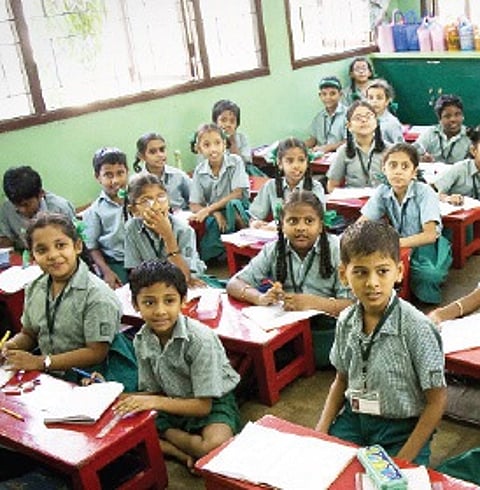

India is on the threshold of formulating a new policy on education. The last comprehensive policy formulation exercise was conducted in 1986. This was hurriedly redone in 1992. The present National Policy on Education is generally referred to as NPE-86/92. A massive exercise of analysing over 10,000 inputs received from various sources in the country was conducted. The ‘challenges in education’ document, published by the Union ministry, gave a realistic description of the state of Indian education at that point of time. It clearly emerged that education never received the priority or resources it deserved and, consequently, its implementation was poor. The ‘Programme of Action’ developed for the implementation of the NPE-86 visualised certain schemes that had the potential to transform the face of the school education system. ‘Why it did not happen on expected lines and levels’ deserves a thorough scrutiny at the pre-policy formulation stage in 2015. The imperative is not to ignore the gains in certain areas and aspects. The scheme of Navodaya Vidyalayas envisaged at that stage has indeed proved rewarding in nurturing talented children from rural areas. One wishes every school in the country is patterned on the lines of Kendriya Vidyalayas and Navodaya Vidyalayas. Both of these, in spite of inadequacies, have established public credibility of high order. If these are multiplied, the rush to high-fee charging ‘public schools’ that are creating social bifurcations can be checked. Private entrepreneurs enter education sector because of ‘assured high dividends’. Knowingly or unknowingly, it contributes to the neglect of the public education system. All the talk about ‘not for profit’ provision is just too transparent a façade. Several school managements are willing to pay taxes provided these are permitted to earn reasonable profits, which they are earning anyway, but cannot pay taxes as the rules do not permit it. Can the new education policy ignore this?
Two major initiatives—the Operation Blackboard (OB) and the District Institutes of Education and Training (DIETs), launched post-1986—could also be recalled as learning experiences for future. All primary schools run by state governments were assisted by the Central government in providing teaching-learning equipment, extra room and extra teacher. Equipment purchases were made at state level and most of these resulted in large-scale scandals and inquiries. Further, teachers were unwilling to use the items, apprehensive that the cost of the items lost could be recovered from their salaries. Second teachers appointed under Central funding in single-teacher schools rarely reached there as they managed postings at the place of their choice. On record, the scheme was a great success, but in reality, it just could not effectively contribute to quality and credibility of primary schools.
DIETs were established to prepare quality teachers for elementary schools. Central government offered generous funding for additional manpower, buildings, equipment, library and laboratories. State governments were quick to recruit support staff but for academic positions, they hired teachers on deputation. Over the years, these schemes were further strengthened from the Central government side but the state governments, exceptions apart, remained indifferent. In spite of repeated assurances given, the argument put forward was: “These are Five-year Plan schemes and state government would not be in a position to bear the financial burden after five years.” Education being in the concurrent list, one often comes across the blame-game between Central and state governments.
Priorities in education reforms must be articulated around the transformation of the lethargic, unconcerned, un-empathetic and change-resistant bureaucratic system. Effective systemic change is the first pre-requisite to ensure even partial fulfillment of the reforms that may emerge from the new policy formulation. Sharp demarcation of accountability must now be made. So long as children suffer inadequacies in learning process, national progress shall remain retarded.
rajput_js@yahoo.co.in
Rajput is a former director of the NCERT